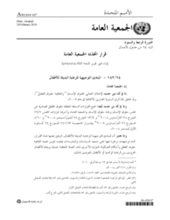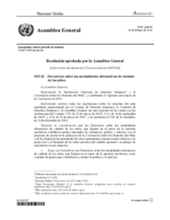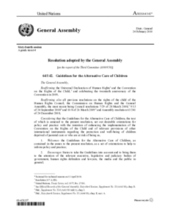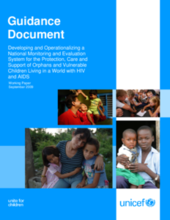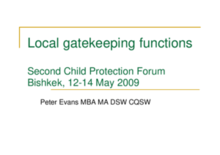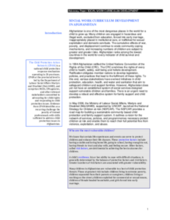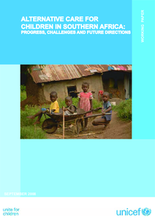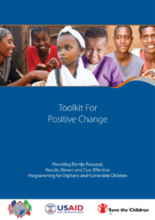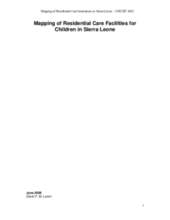Displaying 201 - 210 of 281
The Guidelines for the Alternative Care of Children were endorsed by the United Nations General Assembly on 20th November 2009, in connection with the 20th anniversary of the UN Convention on the Rights of the Child. This momentous day marked a culmination of years of discussions and negotiations led by the Government of Brazil, in partnership with Group of Friends and civil society.
Las directrices sobre las modalidades alternativas de cuidado de los niños fueron endosados por la Asamblea General de las Naciones Unidas el 20 de noviembre de 2009, en conexión con el 20a aniversario de la Convención de los Derechos del Niño de la ONU.
The Guidelines for the Alternative Care of Children were endorsed by the United Nations General Assembly on 20th November 2009, in connection with the 20th anniversary of the UN Convention on the Rights of the Child.
Provides global guidance on specific indicators to monitor and evaluate the national responses to orphans and vulnerable children
This presentation, conducted by Peter Evans at the Second Child Protection Forum in Bishkek from 12 to14 May, 2009, includes information on gatekeeping, including a definition, the components of gatekeeping, a flowchart of entry routes for children into institutions, outlines of assessments and intervention plans, monthly monitoring and information systems, and more.
This paper outlines a vision for the network of services, policies, and programmes necessary to protect children at risk and enable them to reach their full potential, free from violence, exploitation, and abuse.
This report, prepared for UNICEF East and Southern Africa Regional Office (ESARO) assesses the capacity in Malawi, South Africa, Swaziland and Zambia to manage alternative care systems for children.
Documents the strategies of The Positive Change: Children, Communities and Care (PC3) Program - a five-year (2004-2009) integrated and comprehensive program designed to provide care and support to more than half a million orphaned and vulnerable children and their families throughout the country of Ethiopia.
This document includes a portion of the individual worksheets accompanying the Manual for the Measurement of Indicators for Children in Formal Care.
Mapping of existing facilities caring for children in residential capacity for use in developing child protection standards

